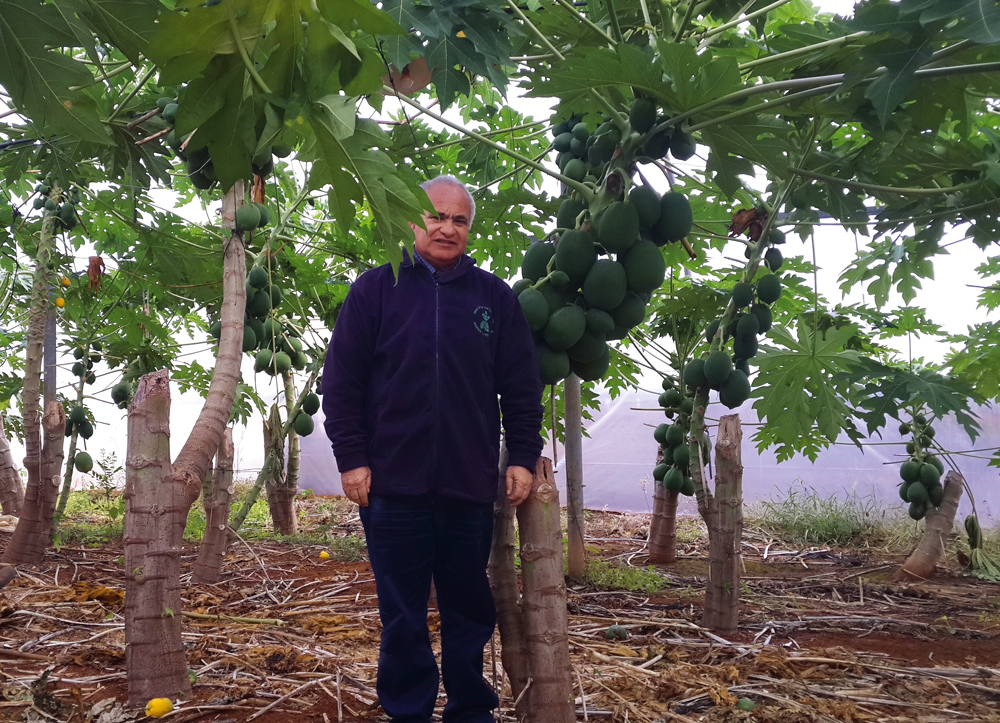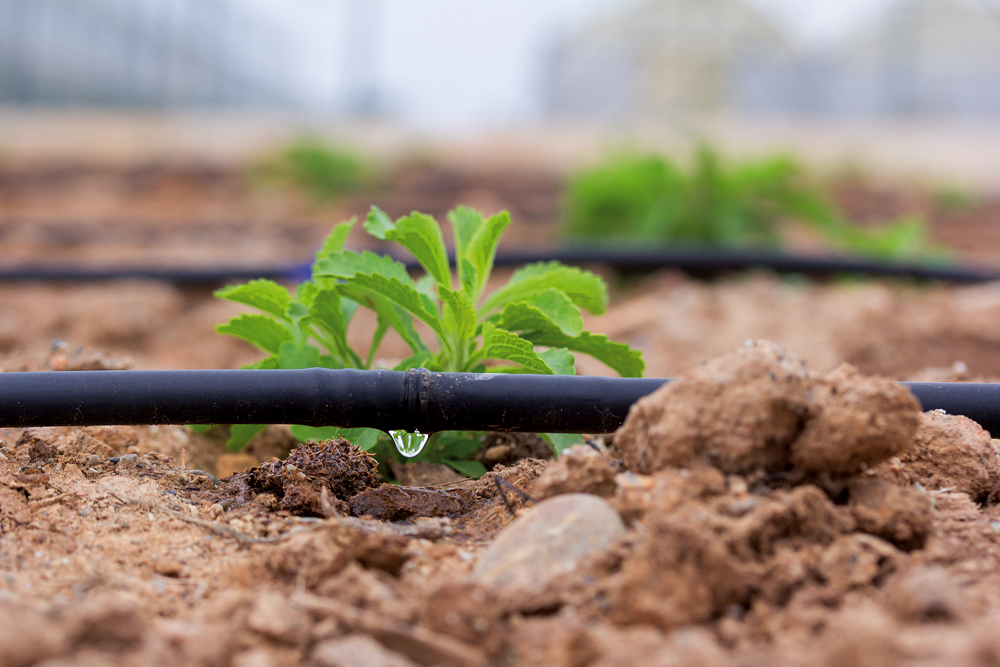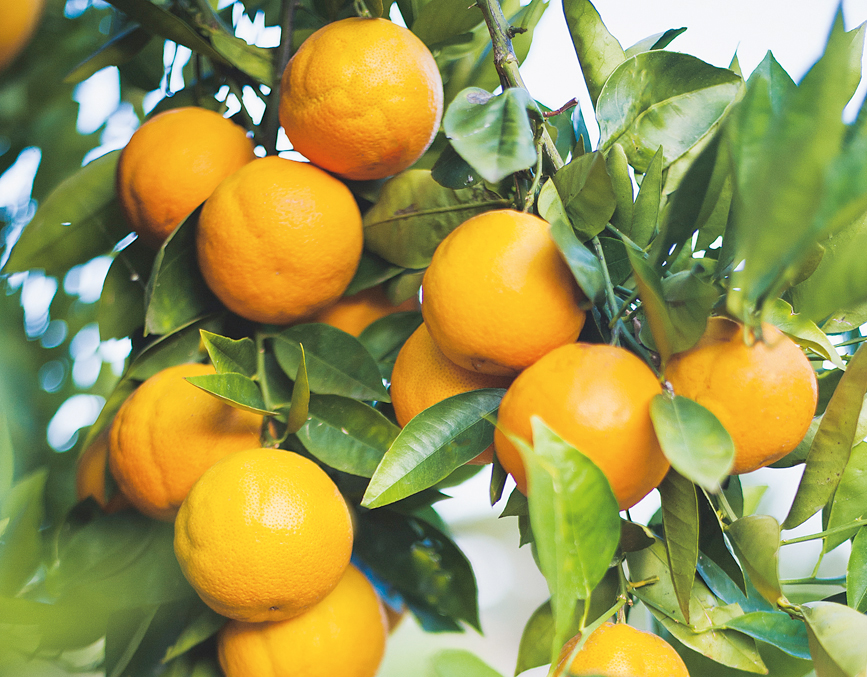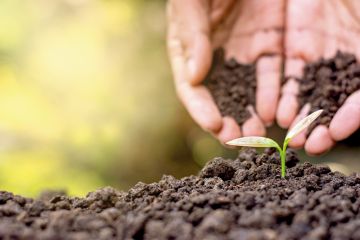To meet the very first, most basic human need for food, modern society can no longer afford a constant dependence on the time of year, weather conditions, pest invasions, animal diseases and other factors. This is a thing of the past. We live in the 21st century and the modern production and processing of food products turn into a reliable and profitable business, regardless of the whims of nature, and spare people of the fear of hunger. Let's take a closer look at what is known as the "Israeli miracle" with expert Mr Boris Bordman.
Would you please name the main reasons for the success of the Israeli agriculture?
An intensive production system, close cooperation between farmers, researchers and consultants of the Ministry of Agriculture. Departure from conventional production systems. Soilless cultivation of many crops, that is, in growing mediums, hydro- and aeroponics. Israel's main discovery of the 21st century, drip irrigation, ensured high yields in all climatic zones of the country.
Where and what farming products does Israel export?
First of all, let me remind you that we are talking about a country of 22,000 sq.km. (the area of Lviv Region). Almost half of its territory is a desert while a significant part is taken by mountains, hills and forests. The Israeli agriculture suffers from a constant lack of fresh water. Each of the 80,000 people employed in agriculture can feed 112 (!) compatriots. For comparison: in the USA, it is 1:89, in Russia, 1:14.7, and in China, 1:3.6.
Read: Grain Maths or Talking Numbers About the Grain Segment
Israel exports agricultural products to dozens of countries in Western and Eastern Europe, Asia, Africa, the United States and Canada. We export vegetables, potatoes, melons, ornamental plants, citrus fruits, seeds and seedlings, fish, flowers (about a billion pieces per year). A significant part of vegetables, fruits and flowers is grown in modern greenhouses. While the average tomato yield on the open ground is 60-80 tonnes per hectare, in greenhouses with a computer-controlled climate it is 500 tonnes.
We learned how to grow strawberries in an artificial medium, having raised it a metre above the ground to ensure that it is well-ventilated and inaccessible to pests. Our strawberry does not need pesticides and it can be bought without reservations.
We export 16 types of greens. It is impressive how fast they get delivered to the market. In the morning, they are transported inside a greenhouse on specially cooled carts, and the next day our greens in special sealed packages are available in the markets of European cities. Israeli seeds sell well in other countries despite being quite expensive. For example, 1 kg of tomato seeds costs 25,000 dollars (200 g is sown per hectare). Israel's traditional agricultural exports are citrus and subtropical fruits. We export 25 varieties of avocado.
Read: Eco Gourmet Restaurants in Kyiv
We hear about miracle achievements of Israeli genetics and biotechnology. Is it true that Israeli scientists have grown square tomatoes?
There are no square tomatoes. (Smiling). There are saucer-shaped zucchini, black watermelon, red banana, green and brown cotton. By the way, cotton is still picked by hand in many countries. In Israel, this process has long been mechanized. Cotton is the first agricultural crop in the country to be completely watered with sewage water which has gone through several stages of purification.
You have recently returned from Cameroon, before that you worked in many countries of Eastern Europe and the CIS. Could you tell us about Israel's foreign contacts in agriculture?
These include special training courses, joint research projects and exchange of experts. Every year hundreds of foreign specialists attend courses in Israel. Courses are taught in English, Spanish, French, Arabic and Russian. I give lectures on mechanization and technology of rural production there.
I visited various regions of Ukraine on multiple occasions. Plant protection was the main problem I dealt with there. Recently, I have been taking part in the international agricultural project "Ukraine-Canada-Israel".
What can you say about Ukraine in this context?
Ukraine is a country with a great agricultural potential. If it succeeds in creating a consulting service (like the Israeli one), which will help local agricultural producers to solve many problems, agronomic and logistical ones, this will enable a rapid growth of the agricultural sector. By the way, this year Israel will host the Agritech International Agricultural Exhibition. More than 100 countries will take part in it. The exhibition will feature many technological innovations in agriculture.
Read: Ukraine Must Become an Agrarian Superstate
A Miracle in the Desert: Israel Experience
Israel rationed food from 14 May 1948, the day it was established, to 1 February 1959. Today it's agricultural exports reached 1.5bn dollars. How did this miracle happen? Let's find out with Boris Bordman, a state referent for the Israeli Ministry of Agriculture of 25 years, author of numerous scientific studies and founder of Agromechanisation and Technology consulting company.







